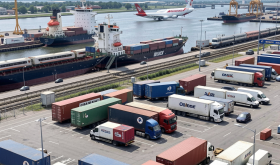
In today’s fast-paced digital economy, companies face growing pressure to provide smooth, customised, and efficient customer experiences. The order management process sits at the core of this expectation — it’s the system that makes sure products and services are recorded, handled, fulfilled, and delivered. While traditional order management systems have served their purposes for years, today’s complex business world needs more flexibility, intelligence, and automation.
This is where Artificial Intelligence (AI) steps in. By adding AI to order management systems, companies are changing how they deal with orders, balance stock, handle demand, and respond to customers. AI isn’t just an extra feature anymore; it has a key role in making operations run and keeping customers happy.
The Changing Landscape of Order Management
Today’s companies encounter new hurdles to handle orders well:
- Omnichannel Complexity
Customers buy through many channels—web stores, brick-and-mortar shops, livestreams, and smartphone programs. To coordinate these channels, businesses need smart unified systems to manage orders.
- Rising Customer Expectations
Shoppers today want to see where their order is in real time, get quick confirmations, and receive their items fast. Traditional systems often can’t keep up with what people want.
- Demand Volatility
Market shifts seasonal rushes, and sales campaigns lead to sudden jumps in orders. Older order management systems have a hard time dealing with these spikes.
- Globalised Supply Chains
Managing orders has become complex. Companies now have warehouses in different countries, work with many shipping companies, and sell to customers worldwide.
- Sustainability Pressures
Companies also face pressure to cut down on waste, make their routes more efficient, and lower carbon emissions when they fulfil orders.
In this climate, AI-powered order management has a revolutionary impact.
Key Ways AI Has an Impact on Order Management
- Predictive Demand Forecasting
A crucial use of AI in order management is to forecast demand. AI models can predict customer demand with impressive precision by examining past sales figures, market patterns, and even outside factors like weather or social media sentiment.
- Benefit: This enables companies to maintain proper inventory levels, prevent stockouts, and cut down on extra storage expenses.
- Example: A store using an AI-driven OMS can expect holiday shopping rushes and place inventory across various fulfilment hubs.
- Dynamic Inventory Management
AI has an influence on inventory allocation by always checking demand trends and how well things are fulfilled. Rather than fixed rules, AI makes choices on the fly about where to keep stock and how to send it out.
- Benefit: Companies can make sure items arrive faster while cutting down on shipping costs and pollution.
- Example: If AI thinks city areas will need more stuff, it moves stock to small centres nearby.
- Automated Order Routing and Fulfilment
Traditional order management system often routes orders based on set rules (like from the closest warehouse). AI goes a step further by looking at many things like how long delivery takes, what it costs to ship, how much it pollutes, and how busy warehouses are.
- Benefit: AI finds the best way to fulfil every order.
- Example: When sales peak, AI can send orders to warehouses with less work to even out tasks and get deliveries out on time.
- Real-Time Customer Insights and Personalisation
Order management system platforms powered by AI can look at customer profiles and buying habits to give each order a personal feel. From suggesting add-ons at checkout to offering delivery choices that fit the customer, AI makes sure the customer feels valued.
- Benefit: More chances to sell more, happier customers, and stronger ties with them.
- Example: An order management system with AI might offer same-day delivery to someone who often buys and values speed, while offering eco-friendly delivery choices to customers who care about the environment.
- Fraud Detection and Risk Management
AI algorithms can spot unusual patterns in order data that might point to fraud. The system flags suspicious activities, like multiple failed payment tries or odd order amounts.
- Benefit: Safeguards income and lowers financial risk.
- Example: An online store using AI can stop fake bulk orders during a big sale keeping the business and real shoppers safe.
- Smarter Returns and Reverse Logistics
Returns cause big headaches in order management for fashion and electronics sellers. AI helps by guessing which items might come back making return shipping more efficient and automating how returned items go back on shelves.
- Benefit: Lower expenses, improved asset recovery, and better sustainability.
- Example: AI forecasts which items have a higher chance of return and plan reverse logistics in advance to cut down on delays and expenses.
- Conversational AI to Support Customers
AI-powered chatbots and virtual assistants are now a common feature in order management system platforms. They offer real-time order tracking, answer common questions, and process return requests without human help.
- Benefit: Quicker customer support, round-the-clock availability, and decreased support costs.
- Example: When customers ask, “What’s the status of my order?”, they can get quick updates through AI-driven chatbots linked to the order management system.
Advantages of AI-Powered Order Management
AI has an influence on order management in several positive ways:
- Operational Efficiency: Less manual work quicker processing, and better logistics.
- Customer Satisfaction: Instant updates personal touch, and faster delivery make customers happier.
- Cost Savings: Better demand predictions and smarter routing cut storage and shipping costs.
- Sustainability: Wiser fulfilment choices lower carbon output and waste.
- Scalability: AI-powered OMS tools can grow to handle busy times and worldwide expansion.
The Future of AI in Order Management
Looking forward, AI will keep pushing what order management systems can do:
- Hyper-Personalisation
AI has an impact on order management system enabling it to provide customised shopping and delivery experiences for each individual.
- Autonomous Fulfilment
Order management system will oversee automated warehouses and self-driving delivery fleets through the integration of robotics and AI.
- Predictive Service Models
AI will go beyond order processing to anticipate and respond to future customer needs, helping businesses stay ahead of the curve.
- AI + Blockchain Integration
This combination will create clear unalterable order records boosting confidence and traceability in worldwide supply chains.
- Closed-Loop Sustainability
AI-driven order management system will handle circular supply chains to optimise the recycling, resale, and repurposing of returned items.
Conclusion
AI is causing a revolution in how companies handle orders. From predicting future demand to personalising in real-time, AI has an impact on turning the order management system into a key tool to boost productivity, make customers happy, and support sustainability.
In today’s tough business scene, using an AI-powered order management system isn’t just an improvement — it’s a must. Companies that use AI well will enjoy smoother operations, better ties with their customers, and a long-term edge over rivals in the market.
As AI tech keeps growing, order management will get smarter, quicker, and more flexible — changing how businesses keep their promises to customers.










